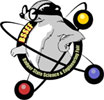Why Science and Engineering Fairs?
 In a world of continual innovation and discovery, students across Wisconsin must have the ability to apply scientific thinking, skills, and understanding to real-world phenomena and problems. Therefore, student learning must include experiences requiring that type of work, such as science and engineering fairs and other authentic, project-based learning. Part of scientific literacy is wrestling with information and sharing learning publicly. Science, engineering, and broader STEM projects provide a meaningful means to connect to the new Wisconsin Standards for Science and Next Generation Science Standards. To reach that goal, however, they should move beyond cookbook ideas or strict adherence to outdated notions of a "scientific method" and connect to students' lives and communities.
In a world of continual innovation and discovery, students across Wisconsin must have the ability to apply scientific thinking, skills, and understanding to real-world phenomena and problems. Therefore, student learning must include experiences requiring that type of work, such as science and engineering fairs and other authentic, project-based learning. Part of scientific literacy is wrestling with information and sharing learning publicly. Science, engineering, and broader STEM projects provide a meaningful means to connect to the new Wisconsin Standards for Science and Next Generation Science Standards. To reach that goal, however, they should move beyond cookbook ideas or strict adherence to outdated notions of a "scientific method" and connect to students' lives and communities.
Lodi, Wisconsin middle school teacher Michelle Howe (our 2018 PAEMST finalist) shares her overview of resources on this science fair site in this short video!
Resources on these pages can support educators in meaningful student science work:
- Project ideas for students - ideas from a variety of sources, including lists linked to the Wisconsin Standards for Science
- Structures for student project work - a range of ideas for types of projects from citizen science and classroom investigations to science/STEM nights and formal fairs
- Local, national, and virtual science and engineering fairs - links to formally organized fairs such as BSSEF, Google, and 3M
- Logistical resources for traditional science and engineering fairs - includes sample student information packets, judging supports, timelines, project rubrics, safety guides, mentor ideas, etc.